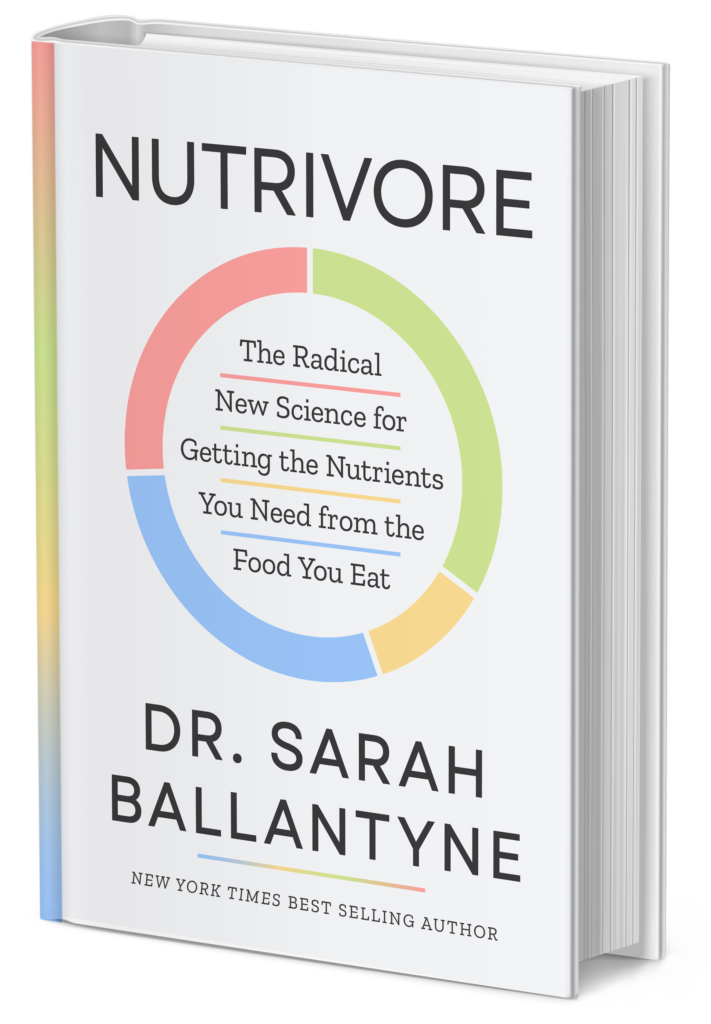Is Drinking Coffee on an Empty Stomach Bad for Blood Sugar?
Wondering why you have been hearing that drinking your morning coffee before breakfast, on an empty stomach, has a negative effect on blood sugar levels? Trying to figure out if there is any truth to this claim? I’ve got you covered! Grab your morning cup of joe and let’s dig into the science to figure out all you need to know!
A 2020 study from the British Journal of Nutrition is trending again because the press release from the study was very provocative. In the press release they claim that “strong black coffee consumed before breakfast substantially increases the blood glucose response to breakfast by around 50%.”
While that may sound very scary, the good news is that is not actually what the study showed!
So, what exactly did the study show? Let’s start by looking at the study design.
First off, the study was only conducted on 29 healthy men and women, so even if the media sound bite was accurate, it would need to be replicated in a larger sample size for confirmation, especially considering all of the science showing that drinking coffee decreases risk of type 2 diabetes.
There were 3 different overnight experiments. On one of those days study participants got a normal night’s sleep of 8 hours and then they drank water in the morning. On the other 2 days study participants were subjected to fragmented sleep. How? The researchers texted them 10 simple math problems, one every 30 seconds, to keep them up for 5 minutes, every hour during the night. First thing in the morning, they were given water or a cup of coffee with 300mg of caffeine, which is roughly THREE times the amount of caffeine in a regular cup of coffee! Thirty minutes after drinking their water or coffee, participants did an oral glucose tolerance test, which means they had a sugary drink and then had blood samples collected to track their insulin and blood glucose levels every 15 minutes for 2 hours.
The Results?
The highest blood sugar response in the study was for the group that had fragmented sleep plus a cup of coffee, before drinking pure sugar for breakfast. At several time points, blood sugar response was statistically higher than the group that had fragmented sleep with water before their sugar breakfast, as determined by the AUC (area under the curve, a good measure of insulin resistance). It’s important to point out that it was not different from the group that got uninterrupted sleep and drank water. This is very strange given that it’s well known that inadequate sleep and disrupted sleep increase insulin resistance the next day and if that’s a regular pattern for an individual, will increase the risk of type 2 diabetes. Researchers also didn’t compare against a group that got uninterrupted sleep and a cup of coffee, which would have been a really important control.
If you look at the graphs of the glycemic responses in the paper, you can see that all of the different groups are over top of each other with a few time points where the differences are bigger than the error bars (ie, statistically significantly different), but it’s not impressively different and they never tested with participants consuming a “real” breakfast (including protein and fiber), which almost certainly would have given them a null result.
Is the take home from this study that we should never drink coffee on an empty stomach because it will destroy our blood sugar control? No!!
Let’s review:
- Poor and inadequate sleep are well known to cause insulin resistance and increase the risk of type 2 diabetes.
- Regular coffee consumption decreases the risk of type 2 diabetes. A 2018 meta-analysis calculated that for every cup of coffee per day, risk decreases by 6% (up to 5 cups per day!)
- Eating breakfast decreases the risk of type 2 diabetes.
- A number of research studies show that drinking coffee in moderation could legitimately provide a range of health benefits, including reducing the risk of health conditions such as certain cancers, stroke, diabetes, Parkinson’s disease, Alzheimer’s disease, cardiovascular disease, gout, gallstones, and depression, along with protecting against antibiotic-resistant bacterial infections and cirrhosis of the liver. It can even reduce muscle soreness after a workout! A meta-analysis from 2014 found that drinking four cups per day was associated with a 16% reduction in all-cause mortality (as well as a 21% reduction in cardiovascular disease mortality).
Based on this study, the only thing you can say is that if you have a jerk of a friend texting you math problems every hour during the night, so that you need 3 cups of coffee to get you going in the morning, in that case it would be best not to drink pure sugar for breakfast! If you’re a coffee drinker like me and you like to drink coffee first thing in the morning before making breakfast, that is absolutely fine!! I’m personally going to keep drinking coffee when I get up in the morning (because I like to) and THEN eat a healthy breakfast.
If you’d like to hear my thoughts on this study, check out my video.
cITATIONS
Expand to see all scientific references for this article.
Ballon A, Neuenschwander M, Schlesinger S. Breakfast Skipping Is Associated with Increased Risk of Type 2 Diabetes among Adults: A Systematic Review and Meta-Analysis of Prospective Cohort Studies. J Nutr. 2019 Jan 1;149(1):106-113. doi: 10.1093/jn/nxy194. PMID: 30418612.
Carlström M, Larsson SC. Coffee consumption and reduced risk of developing type 2 diabetes: a systematic review with meta-analysis. Nutr Rev. 2018 Jun 1;76(6):395-417. doi: 10.1093/nutrit/nuy014. PMID: 29590460.
Cherniack EP, Buslach N, Lee HF. The Potential Effects of Caffeinated Beverages on Insulin Sensitivity. J Am Coll Nutr. 2018 Feb;37(2):161-167. doi: 10.1080/07315724.2017.1372822. Epub 2018 Jan 9. PMID: 29313749.
Crippa A, Discacciati A, Larsson SC, Wolk A, Orsini N. Coffee consumption and mortality from all causes, cardiovascular disease, and cancer: a dose-response meta-analysis. Am J Epidemiol. 2014 Oct 15;180(8):763-75. doi: 10.1093/aje/kwu194. Epub 2014 Aug 24. PMID: 25156996.
Lee SWH, Ng KY, Chin WK. The impact of sleep amount and sleep quality on glycemic control in type 2 diabetes: A systematic review and meta-analysis. Sleep Med Rev. 2017 Feb;31:91-101. doi: 10.1016/j.smrv.2016.02.001. Epub 2016 Feb 9. PMID: 26944909.
Smith HA, Hengist A, Thomas J, Walhin JP, Heath P, Perkin O, Chen YC, Gonzalez JT, Betts JA. Glucose control upon waking is unaffected by hourly sleep fragmentation during the night, but is impaired by morning caffeinated coffee. Br J Nutr. 2020 Nov 28;124(10):1114-1120. doi: 10.1017/S0007114520001865. Epub 2020 Jun 1. PMID: 32475359.








